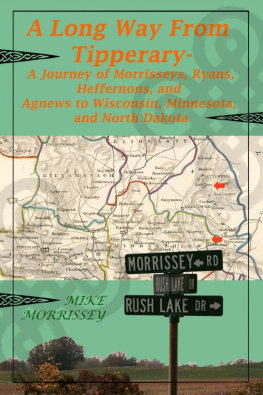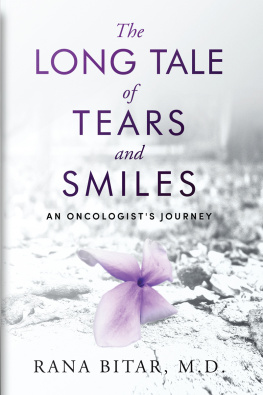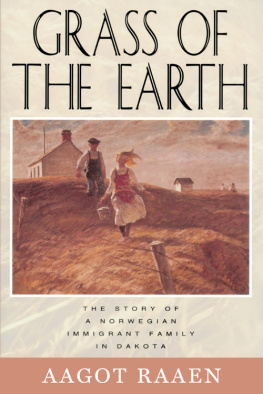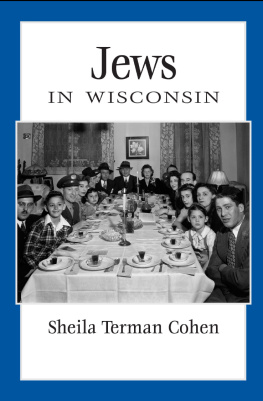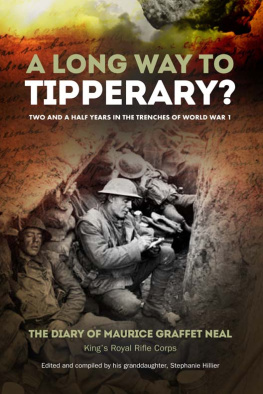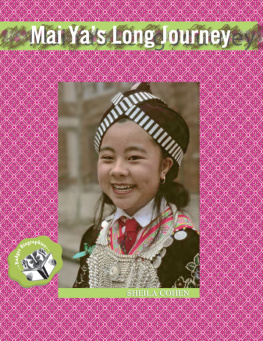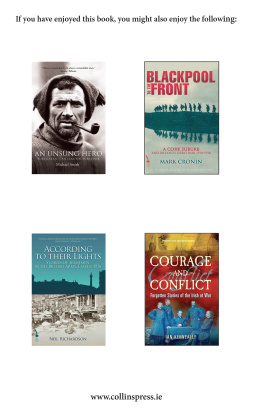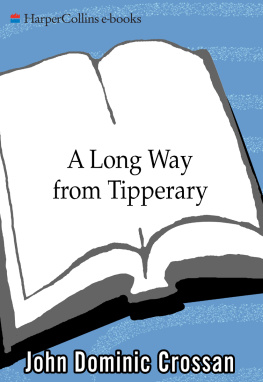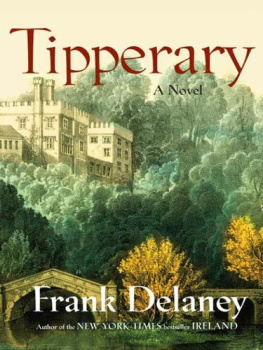A Long Way from Tipperary: A Journey of Morrisseys, Ryans, Heffernonsand Agnews to Wisconsin, Minnesota, and
North Dakota
Mike Morrissey
Smashwords Edition
Copyright 2015
Mike Morrissey
Smashwords Edition, License Notes
This ebook is licensed for your personal enjoymentonly. This ebook may not be re-sold or given away to other people.If you would like to share this book with another person, pleasepurchase an additional copy for each recipient. If you're readingthis book and did not purchase it, or it was not purchased for youruse only, then please return to Smashwords.com and purchase yourown copy. Thank you for respecting the hard work of thisauthor.
For Graedyn, Megan Rose, Brevyn, Eric (Teddy)and Courtlyn,
Morrisseys a ll,
That they may know of their IrishHeritage
Erin Go Bragh!
Preface
As I begin to apply the finishing touches tothis bit of family history, I take stock of the project in itsentirety. I began writing of the Morrissey family about seven yearsago. The project has never been far from my mind, my sense ofgestalt constantly reminding me this or that needs doing, or Ireally should finish that before I start this. My agenda has beenever thus...a herding of cats to use the clich. It wont be longnow until I can say, as I misinterpret a contemporary song refrainwith my deficient hearing, ...that I can lay this burdendown.
From the beginning I have described thisproject as my gift to the grandchildren. But it is more than that.It is also an endeavor of self-discovery. And now that Im nearingthe completion, I think I have a better grip on moi . I am certainly more comfortable with myself thanI have ever been. I tilt at fewer windmills and engage in lessrhetorical combat than in days of yore. Have I become docile? Ithink not. The study of ones familys history uncovers many peoplewhose trials exceed ones own by an infinite magnitude. Our lineneeds look no further than Timothy Morrissey, the immigrantpatriarch. Having shepherded his family through the years of thepotato famine from 1848-1851, he sets forth for Americaye withhis wife Ellen and eight of the nine children. The oldest, Anne, wewill not again meet in the new world. She was 29 at the time thefamily sailed and was probably married with a family of herown.
No sooner has Tim managed to get thefamily here, he dies of dysentery, undoubtedly contracted on theharsh voyage, and hastily buried in a potters field. One can onlyimagine the anxiety that Ellen must have felt. She would go italone with the help of her young-adult and teen-age children. JamesBodely Morrissey (my great-great uncle), who wore his mothers nameproudly for a lifetime, would assume the mantle of patriarch andpush the family west from New York to Wisconsin while buildingrailroads. Today Tim and Ellens descendants likely number in thethousands.
This volume would not have seen the lightof day without the encouragement and assistance of some veryspecial people. First, Carol Howell, Jane Ahlin, and Ryn Pitts, (mywriting-group buddies), exceptional writers themselves, have beenkind enough to read and critique, and have kept me moving forward.Also to members of the extended Morrissey Clan who have roots inWisconsin and surrounds, Bob and Tom Morrissey and their wivesKathleen and Kate, who have regaled me with stories of life on thefarm in Berlin and Omro, Wisconsin, and surrounds; Patrick MichaelMorrissey of Wisconsin, Ohio, and now of Chicago, who answered mypost on a web genealogical forum on which I shouted WisconsinMorrissey genealogist, speak to me! His phone call was abreak-through. To Kathy Morrissey Daggett who guided me to theOshkosh Museum and the local cemeteries; Clem Sorgaard, myEnglish-teaching companionto squirming adolescents a half-centuryagofor his careful reading, editing, and apt suggestions; to SisMary Morrissey Finley for plowing through an early draft, and SisMaureen Morrissey Bushard for her keen eye to detail; to longtimefriend and colleague Tom Pauley, whose sage advice I have relied onfor over forty years; to James Silas Rogers (editor of thescholarly NewHibernia Review at theUniversity of St. Thomas, St. Paul) for his generous gifts ofresource materials; to Dan Nygard for his eager and willingassistance in formatting and proofing; and to my wife Suewhose ownart forms speak volumes with far more clarity than can myscribblingfor her continuing support and harassmentalways withgood intent.
And last, a wink and a nod to William LeoMorrissey and Lois Ethel Agnew, my parents, blood from Tipperaryand Donegal. Wouldnt they be lovin this....
WMMFargo, ND, October 2015
Table of Contents
Chapter 1
A Sense Not Understood
What possible inner homing device cancause a person to be drawn to a former residence that predatesone's ability to compile and catalog data? Why do geese, or wildturkeys, or monarch butterflies for that matter have the capabilityof traveling thousands of miles to former reproductive grounds?Perhaps humans had some of those same innate capacities, but nolonger engage them as a result of the continuing evolution of thehuman brain.
If you are reading this you must be arelative. Or, you broke into our home and found your way to mystudy. Why you might pick up this manuscript and begin reading isbeyond the best efforts of my imagination. I have rendered thistale to paper only to satisfy my own needs. Perhaps, to take stockof my life in some way. Or, possibly, so my children, and maybetheirs, could have some sense of the journey traveled by theirancestors. Anyway, whatever compels people to write a bit of theirfamily history now compels me. I hold it back no longer.
My earliest recollection is of being inthe yard behind the back of a house. It is a white house, squarerather than rectangular, with a dark gray wood shingled roof. Thereare no rain gutters. At the back there is a garage with abasketball hoop on a nearby pole. I can visualize myself up nearthe hoop but unable to grasp or touch it. I am on my father'sshoulders. The season is early spring or late fall; it is cold andI am wearing a fleece-like powder blue jacket and a matching capwith flaps. I think it is fun to be up in the air! The breeze slipsin between the flaps and my ears. I think they are hot, confusingcold momentarily with heat. The year is 1942, and I am two yearsold give or take a few months. It would be more than a half-centurybefore I would stand in that driveway again.
*****
In the summer of 1997 I had taken a quicktrip to Dickinson, ND, where Mother's sole remaining North Dakotasibling, Robert Agnew, was living. News from Mother told he wasfailing, and since he had been a very special person to me when Iwas growing up, I wanted to make sure I had one last chance to seehim before the final card was tossed on the table. He was the unclefirst in line buying gifts for me following my birth. A pair ofcowboy boots when I was a year old, which I would grow into at agefour; a Marx electric train for my second Christmas which hasweathered all the travail a child could thrust upon it and stillcircle the tree at Christmas three quarters of a century later; anda .22 rifle for my third birthday, which my father would finallyallow me to carry on the railroad right-of-way at age fourteen,solo, following intense training by his side.
The passage of time had shrunk Robert'syouthful five-foot-eight stature to something considerably less.For the previous several years his life seemed more and more to bea steady stream of doctor's orders: " Do this! " " Don't do that! " Whydoes it all boil down to this? The freedom that had been so much a part of his existencewas stolen away a molecule at a time.
In the early years he had roamed the NorthDakota prairies in his Ford pickup at seventy miles an hour, amodern era cowboy; instead of rounding up cattle, he rounded upnickels.

